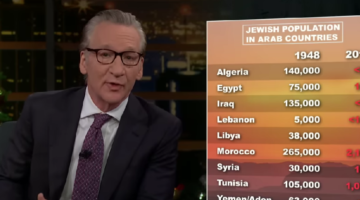Ever since Harry P. was a young boy, strange, unexplainable things would happen to him. Like the time his aunt cut his hair, only to find it fully grown again in the morning. Or when his aunt tried to force him into a
revolting old sweater, and it shrunk to a tiny size. Once, when being chased by bullies at his school, he suddenly found himself upon its roof. One day Harry came to an unavoidable conclusion -that he was a wizard. "That was the best and the worst day of my life", Harry tells the camera from his Upper West Side apartment, "the best because I came to terms with who I really was, the worst because of the social pressures I was about to face". For Harry is not only a wizard, but one of many Orthodox Jewish wizards and witches featured in the new film, "Conjuring before G-d".
Although witches and wizards have been gaining acceptance in most cultures and religions, Orthodox Jewish culture possesses a strong magicophobia. Rabbi Albus Dumbledore, an Orthodox rabbi and wizard who is considered the spiritual head of the magical Orthodox community, says this bias goes beyond
the halachic issues. "Although the Torah does seem to say the sorcery is forbidden and its practitioners should be killed", Dumbledore reasons, "we can reinterpret this prohibition the same way we do with other difficult passages in the Torah, such as the prohibitions against lighting fires on Shabbat and eating on Yom Kippur. The real issue here is close mindedness of the community". Dumbledore experienced this firsthand as a student in yeshiva in Israel, when he told in his rosh yeshiva that he had magical tendencies. "He told me I have a special gift, but that I could only use it in a halachic fashion". Dumbledore is also unhappy with the halachic discussion in the "sympathetic" Orthodox community.
"Some rabbis try to say that I'm an ones, that I'm forced into it, but I cannot except that my talent is a negative act that I'm forced to do. Another suggested that the issur is not ton the gavra of the sorcerer, but rather on the chefza of the spell, thus limiting my responsibility. But this is also unfair, for this separates me from my work. I'm waiting for a rabbi to say, 'its okay what you do' and stop this pilpul.
But not all wizards and witches feel that the Jewish approach can be as open as Dumbledore thinks. Sabrina S. from the Upper East Side cries as she speaks of the deep anti magic sentiment in the Jewish tradition. "Maimonedes writes that sorcery doesn't really exist. Can you imagine the insensitivity?
Saying what I feel doesn't even exist?" Sabrina finds support in a group called Shabbitches, which is made up of shomer Shabbat witches. Not all witches, however, have that support.
Tara and Willow are witches that live in the Ultra -Orthodox city of Bnei Brak. "We get stuff thrown at us all the time", Willow tells the camera as a brick flies through her window onto her kitchen table, "full bottles, empty bottles, half full battles, half empty bottles, diapers (both new and used), books (hardcover and soft), cigarettes butts, money, and any other strange object". Upon being asked why they choose to live in such a hostile area, Tara responds, "First we lived in a modern orthodox community, but the coeducational education was not up to our religious standards. We then moved to another area, but we didn't hold by
the eruv. There was another community where we stayed for about a year, but some women there only covered their hair, but not their sheitels. Really, this is the only area that is up to our religious (Tara pauses for a moment as she's hit in the head with a golf club) standards".
While other branches of Judaism have been more open to sorcery the future of sorcery in the Orthodox community remains to be seen. It is the hope of Dumbledore, along with many others, that this film will force Orthodox Jews to face up the issue. "I wish I could just wave my wand and make this all better. But people must learn on their own how magic can add to Judaism, just as we know that what Judaism adds to magic".








